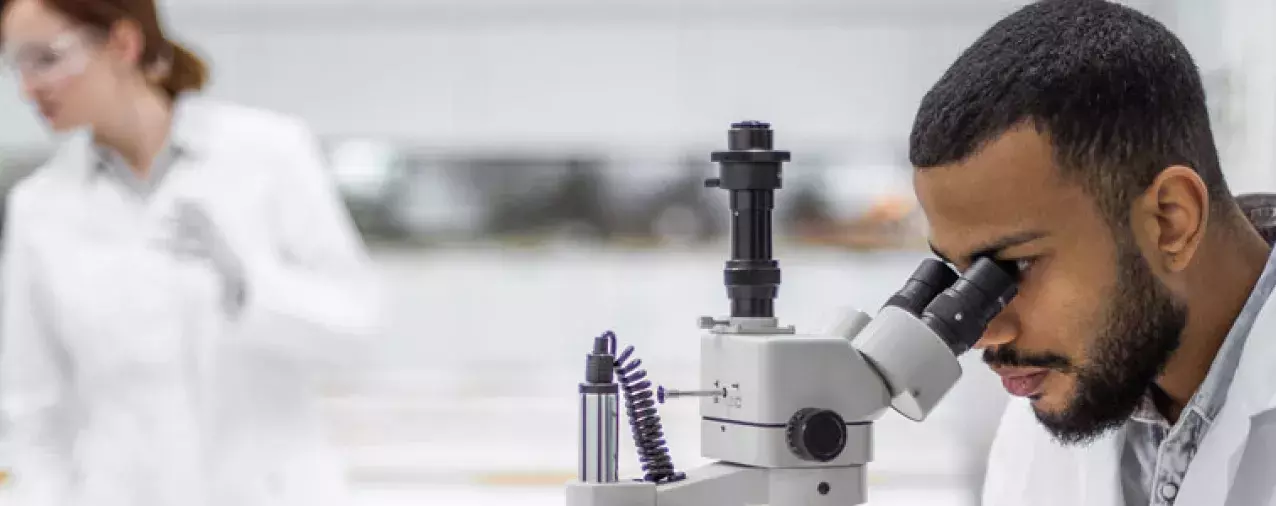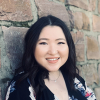Genomics: Insight

An Education Initiative to Increase Diversity within the Field of Genetic Counseling

The human genome is a complex, mysterious work of art. While the advances in genomics have come a long way, there is an abundant amount of information we have yet to learn and decipher. A genetic counselor can assist in breaking down complex genetic information in a format that is understandable to patients and their family. Genetic counselors can help facilitate genetic testing, interpret results, and provide support. The National Society of Genetic Counselors (NSGC) has conducted a Professional Status Survey (PSS) since the 1980’s to address areas in the workforce such as salary and benefits, satisfaction and inclusivity, work environment, and demographics. As of January 2020, there are reported to be 5,172 certified genetic counselors. Out of the respondents who filled out the PSS, 90% identified as White, 5% as Asian, 2% as Black or African American, and 2% as Hispanic or Latino(a), and 1% as Other. Information from the 2020 PSS revealed that a majority of genetic counselors are white females between the ages of 25-34 (Hoell, 2020). Although the number of individuals entering the field of genetic counseling has increased each year, the profession still lacks representation from diverse communities. The need for diverse healthcare workers to adequately serve an ever-growing diverse population is essential for increasing access to and quality of healthcare services. Our genetic information can reveal personal information which needs to be communicated with empathy and compassion. We need trained healthcare workers who represent a variety of ethnicities, genders, ages, and cultures to provide care accordingly.
Examining efforts to increase diversity in genetic counseling:
Efforts to increase diversity within the genetic counseling workforce have been examined and discussed by numerous researchers. Mittman and Downs (2008) provided a comprehensive report on previous diversity initiatives within genetic counseling and suggested methods to improve recruitment and retention of genetic counselors from minority populations. They suggested that efforts to increase awareness about genetic counseling should take place not only in high school, but middle and even elementary school. Earlier awareness about genetic counseling increases the pool of possible careers students are exposed to and may choose to select from. Schoonveld et al. (2007) surveyed minority genetic counselors and genetic counseling students regarding their introduction to the field and found that introduction to the field occurred late and happened accidentally either in college or after completing an undergraduate degree. This is consistent with findings from Oh and Lewis (2005) which surveyed high school and college students about their awareness and perceptions of genetic counseling. They found that minority students had less knowledge about genetic counseling than white students but were just as interested in the career. Awareness of genetic counseling prior to college may help students consider genetic counseling as a possible career when selecting a career to pursue in college. Learning about the field earlier in the career decision-making process may allow potential genetic counselors more time to pursue relevant experiences, making them more competitive applicants for graduate programs. A common theme among these studies was the lack of awareness about genetic counseling and the benefit of earlier intervention methods to increase awareness and possibly interest in genetic counseling.
Proposed methods to increase awareness:
In 2019, Gerald et al. surveyed undergraduate students regarding their awareness, perceptions, knowledge, and interest in genetic counseling. The study reported that students who heard about genetic counseling in grades K-12 or from someone they knew had higher levels of familiarity than those that heard about it from online sources. Gerald et al. also reported that students were most interested in hands-on exposure to careers of interest. Hands on experiences such as shadowing, interviews, recruiting events, and similar learning experiences could be beneficial in increasing awareness about genetic counseling. Another study by Buck et al. presented eighth grade female students with a variety of diverse scientists and asked about their potential to be a role model. Initially, the students had misconceptions on what a scientist was, but through frequent exposure to diverse scientists, they were able to relate to a scientist as someone whom they might identify with. In the end, the students reported a science role model to be someone who cared about them and shared common interests and experiences (Buck et al., 2008). A study conducted by Hutchinson et al. (2019) surveyed 6th grade students at an urban middle school. The students were presented a genetic counseling lesson that focused on the steps to become a genetic counselor and walked through a mock genetic counseling appointment. After completion of the presentation, there was an increase in students’ ability to say they had a role model in science. Genetic counselors serving as role models in their communities could be beneficial in increasing awareness and resolving misconceptions about genetic counseling.
Efforts to increase awareness of genetic counseling in diverse communities:
The previous efforts to examine and increase diversity and awareness of genetic counseling inspired my graduate research project. Combining key points from previous studies, I developed a presentation on genetic counseling tailored to 8th grade Hmong students to increase awareness and interest in the field of genetic counseling. The presentation included information about who a genetic counselor is, how to become a genetic counselor, where a genetic counselor works, and a mock genetic counseling session. The mock session focused on core parts of a genetic counseling visit such as contracting, taking a family history, education, giving results, and providing support and resources. Information in the presentation was modified to be relatable to the 8th grade Hmong students. Information on helpful classes to take in high school were provided and complex genetic terminology were broken down during the mock session. Due to the pandemic, the presentation took place over Zoom. Nevertheless, I was able to present about genetic counseling and have discussions with the students. According to the students who completed the post-survey, this was their first experience hearing about genetic counseling. Although not all the students responded with interest in becoming a genetic counselor, they were able to walk away from the presentation knowing what a genetic counselor is and the option of the career path.
Similar presentations can be completed in a variety of fields and diverse communities. Although meeting with the students in person would have been valuable, there were several advantages to meeting virtually. It can be difficult to find diverse healthcare workers to present and meet with students from diverse communities. Meeting virtually allows healthcare workers to meet with students from different states who may not have access to diverse mentors. Increasing diversity within genetic counseling and other healthcare professions starts with the next generation of young scholars. Addressing the need for a diverse workforce in the genetics community is important in developing adequate and equitable care for patients from a variety of backgrounds.
References
- Buck, G., Clark, V., & Beeman-Cadwallader, N. (2008). Science role models for adolescent girls. Science Scope, 32(4), 40-43. Retrieved March 4, 2020, from www.jstor.org/stable/43181289
- Gerard A., Noblin S., Hashmi S., Bean A., Bergstrom K., Hurst C., Mattox W., Stevens B. (2019). Undergraduate Student Perceptions and Awareness of Genetic Counseling. Journal of Genetic Counseling, 28(1), 27-39. 10.1007/s10897-018-0284-y
- Hutchinson A., McMillan E., Griese E., Bares V., Stein Q., Daily L. (2019). The Journal of STEM Outreach, 2(1). 10.15695/jstem/v2i1.19
- Mittman I., Downs K. (2008). Diversity in genetic counseling: Past, present and future. Journal of Genetic Counseling, 17(4). 301-313. 10.1007/s10897-008-9160-5
- Hoell. (2020) National Society of Genetic Counselors, Inc. Professional Status Survey 2020. (National Society of Genetic Counselors) Retrieved March 4, 2020, from www.nsgc.org
- Oh T., Lewis L. (2005). Consideration of genetic counseling as a career: Implications for diversifying the genetic counseling field. Journal of Genetic Counseling, 14(1). 71-81. 10.1007/s10897-005-1501-z
- Schoonveld K., Veach P., LeRoy B. (2007). What is it like to be in the minority? Ethnic and gender diversity in the genetic counseling profession. Journal of Genetic Counseling, 16(1). 53-69. 10.1007/s10897-006-9045-4
About the Author

Savannah Lo is a recent graduate from Augustana University's Genetic Counseling Program. She is passionate about genetics and the Hmong community and looks forward to opportunities where she is able to combine both.